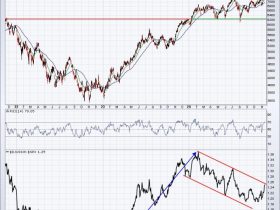The global market for cobalt, a critical component in batteries used in electric vehicles and renewable energy storage systems, is currently facing significant uncertainty due to shifts in battery chemistry. These changes are expected to impact the demand for cobalt and potentially disrupt the price recovery that the mineral has been experiencing in recent years.
One of the key factors contributing to this uncertainty is the growing trend towards reducing or eliminating cobalt in battery chemistries. Cobalt has traditionally been a key component in lithium-ion batteries due to its ability to stabilize and prolong the battery’s lifecycle. However, concerns over the ethical and environmental implications of cobalt mining, as well as its high cost and potential supply chain disruptions, have led many battery manufacturers to explore alternative chemistries that rely less on cobalt.
For example, some companies are developing nickel-rich cathodes as a replacement for cobalt in lithium-ion batteries. Nickel-based cathodes offer higher energy density, better thermal stability, and lower costs compared to cobalt-based cathodes. As a result, they are becoming increasingly popular in the electric vehicle market and could potentially reduce the demand for cobalt in the future.
Additionally, other battery technologies, such as solid-state batteries and lithium-sulfur batteries, are also being developed as potential alternatives to traditional lithium-ion batteries. These new technologies have the potential to offer higher energy density, faster charging times, and improved safety compared to current battery systems. While these technologies are still in the early stages of development, they are seen as promising solutions that could further reduce the reliance on cobalt.
The uncertain future of cobalt demand is further compounded by geopolitical factors and supply chain risks. The majority of the world’s cobalt production comes from the Democratic Republic of Congo, a country known for its political instability, human rights abuses, and environmental concerns. These factors have raised ethical and sustainability issues surrounding cobalt sourcing, leading companies to seek alternative supply sources or invest in initiatives to improve the transparency and traceability of cobalt supply chains.
In conclusion, the cobalt market is facing a period of uncertainty as shifts in battery chemistry and supply chain dynamics continue to impact the demand and price of the mineral. While cobalt will likely remain an essential component in batteries for the foreseeable future, the trend towards reducing cobalt content and exploring alternative battery technologies could reshape the market and disrupt the recent price recovery that cobalt has experienced. Companies in the battery and electric vehicle sectors will need to closely monitor these developments and adapt their strategies to navigate the changing landscape of the cobalt market.













